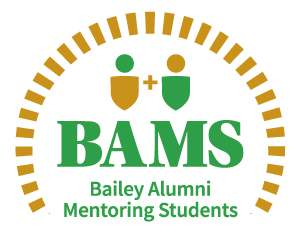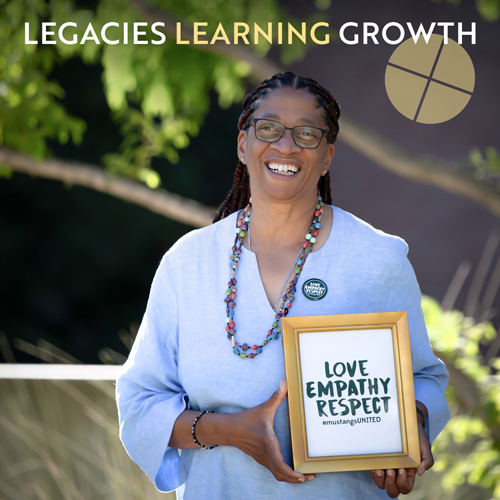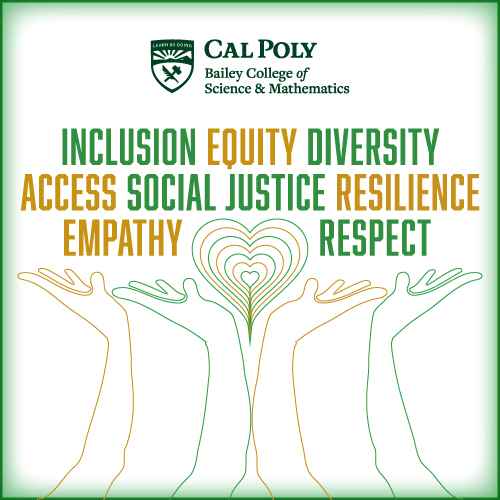Traveling, Presenting, and Networking
Broadening Scientific Horizons
“Student-faculty travel is really important because it gives students the opportunity to meet other scientists and get feedback on their work from people outside of Cal Poly,” says Ashley McDonald, a chemistry professor. McDonald knows whereof she speaks. As the Chemistry Department’s coordinator for the Frost Summer Research Program, she sees firsthand the learning process of the student participants; be it in the classroom, lab, workshop or presentation event.
Shortly after the academic year ended in June 2017, the Frost Fund covered the travel expenses for McDonald and a team of four Cal Poly Bailey College students to attend two separate conferences over the summer. Having the travel costs covered by the Frost Fund paved the way for McDonald to write and receive a National Science Foundation (NSF) grant supplement for $12,000. According to McDonald, each dollar was money well spent.
“When the students returned from the PDB (Protein Databank workshop at Rutgers University), they immediately rolled right into their Frost Summer Research projects,” McDonald said. “One of the students actually applied a computational technique she had just learned at the PDB workshop to her research.”
 Having the travel costs covered by the Frost Fund paved the way for McDonald to write and receive a National Science Foundation grant supplement for $12,000.
Having the travel costs covered by the Frost Fund paved the way for McDonald to write and receive a National Science Foundation grant supplement for $12,000.
That student was third-year biochemistry major Taylor Witter, who elaborated on the immediate implementation of the technique. “My lab partners and I attended a bootcamp for antimicrobial resistance at the PDB Conference. There, we were introduced to an application called Chimera.” Taylor goes on to explain, “Chimera takes files from the RCSB Protein Data Bank (PDB) and models the selected proteins. I used Chimera for our Frost Summer Research project to analyze the active site of beta-lactamase proteins and to determine which amino acid residues were involved in enzyme-inhibitor complexes, the types of bond made and the length of bonds. The amino acid residues were then put in a spreadsheet and compared to the results of other beta-lactamase proteins.”
Taylor and three other third-year FSR Fellows — Jaron Deacon (BCHEM), Rei Takahasi (BCHEM) and Emily Hecomovich (BIO) — later attended and presented at a second conference, the Molecular Education and Research Consortium in Undergraduate computational ChemistRY (MERCURY) Conference at Furman University in South Carolina. This conference had an impact on her as well, “I spoke with students whose research was similar to mine and we exchanged knowledge about different computational applications.” Taylor continues, “Everyone at this conference had a passion for computational chemistry that was infectious, and witnessing this passion gave me the motivation to power through the last month of summer research.”
As Taylor has discovered, scientific traveling and events can be very inspiring for students. “They often find opportunities for internships, off-campus REU programs, or grad school,” summarizes Dr. McDonald. “When I was an undergrad, my advisor took me to a lot of conferences, and I actually met my graduate advisor when I was giving a poster at the Southeast Regional ACS meeting. I want to give our students opportunities like that too, and the Frost Fund enables these kinds of interactions to occur.”





